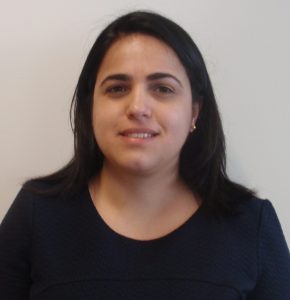Latest news
Interview with Dr. Ana Antunes-Martins
Written by Sarah Hambly
March 26, 2019
This week, we were delighted to catch up with Dr. Ana Antunes-Martins who has recently joined LIDC as Research Programme Manager. Ana discussed her new role, as well as her previous experience in programme management at the Medical Research Council (MRC).
1) You have recently joined LIDC as our new Research Programme Manager. What does your new role involve?
I work closely with the Director of LIDC, Professor Claire Heffernan, to help identify opportunities for the LIDC Community. These take many different shapes. For example, they could be funding opportunities or workshops being launched by funders or other stakeholders. On the other hand, these opportunities could be our own in-house initiatives such as communities of practice in various areas of international development. I will develop these in consultation with my colleague, Sarah Hambly, and the LIDC academic community.
2) What excites you most about your new role at LIDC?
I am excited by the opportunity to interact with LIDC’s large and dynamic community of staff, students and researchers, as well as other stakeholders based in the UK and abroad. I look forward to gaining direct exposure to development challenges and the role of research tackling them or preventing future problems.
3) Before joining LIDC, you worked at MRC as a Programme Manager. How will your previous job help you in your current role?
At the MRC I was responsible for the Global Health portfolio in the area of noncommunicable diseases. Additionally I led on strategic initiatives in global nutrition research. Consequently, I became familiar with the global health research landscape and some key players in research communities. The role also helped me understand the challenges and benefits of working in international development. Furthermore, I’ve seen research development from the funder’s perspective. I have a good understanding of how funding opportunities are developed and of what funding panels like to see in different research bids. I hope that will become very useful when I support applicants in my current role.
4) You also worked as an academic. Could you please tell us about your research?
As an academic, I worked mostly as a molecular neuroscientist in areas of clinical relevance such as memory formation and chronic pain. Furthermore I worked in the field of cancer, trying to understand the biology of glioblastomas – a form of malignant brain tumours.
5) What advice would you give to someone considering a career in research programmes development?
If you want to pursue a career in research programme development, I would advise you to read widely in the scientific areas you focus on, and understand exactly how research funding works. In this way, you will develop a good understanding of available opportunities, and how the research community can shape them.

